 The High Elf Region
The High Elf Region

Text and images provided by Ascaron, the
Original Post is updated regularly by Carolyn Hacker.
This region has small villages in a Mediterranean climate. It is a
pleasant countryside, with cultivated fields and small woods with leafy
green trees, while the village centers are sun-baked and a bit dusty.
The common Elves live in simple houses in the countryside or in
villages. The nobility live in castles. However, there are a few areas
where the fields have been burned and the villages destroyed. The fields
here will be tilled in strips, with some earmarked for the peasants, and
some for the masters.
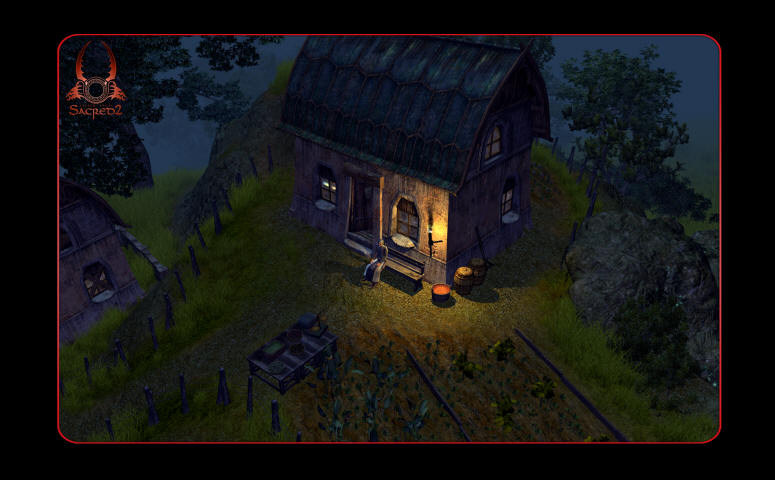
The dominant race here is that of the Elves, who live in a feudal
society where most of the Elves are commoners and serfs, with a
privileged nobility ruling over them. The Elves use Humans as servants,
and are highly prejudiced against them – they don’t view Humans as
property, exactly, but neither do they believe that Humans are capable
of advanced thought or civilization. The attitude of both the common
Elves and the nobility towards the Humans is similar to the traditional
attitude towards the “untouchable” caste in India.

A long way from here, the Elves have built a wall to keep the Humans in
the Human territory. Nevertheless, some Humans come across the border,
mostly imported as servants or laborers to do the work that the Elves
consider to be beneath themselves. Humans can become free, but they will
never be regarded as “equal.” Where free Humans have gathered in small
settlements consisting of a few huts, they continue to be the victims of
prejudice and occasional attacks, and they know they will never receive
justice under the law.
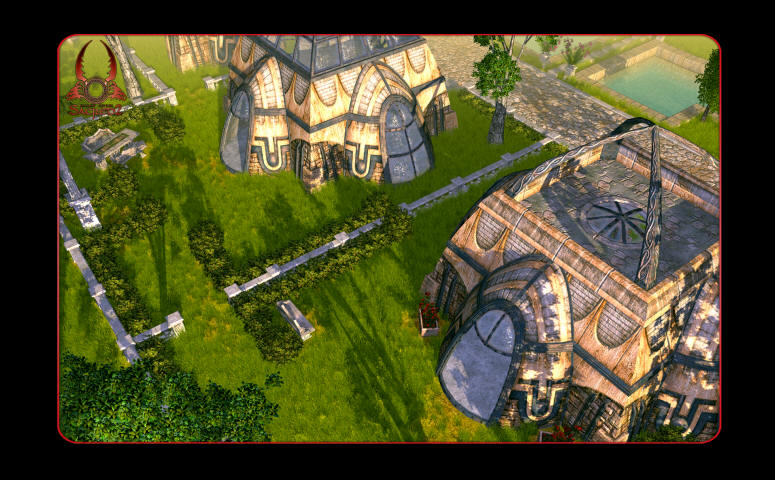
The most visible current conflict is between the Elven nobility and the
clergy, each of which has armed forces traveling across the countryside
fighting each other. The armies are a hardship on the people and the
land. They trample the fields and rob the peasants of their animals and
food.
Elven Capital (Thylysium)
The visual style and atmosphere the Elven capital resembles that of the
ancient imperial capital cities like Rome. The most humble of buildings
are made out of fine materials, and the most important buildings are
made from the rarest materials in all of Ancaria. The dark and mystical
decorations of the temples are eye-catching, and the countless lines of
T-Energy in the alleys, that flow through the town like veins in a leaf,
are also striking. With the exception of the battle arena and the area
where the nobility resides, the town is primarily defined by three
central places: City Hall, the Great Temple and the harbor.
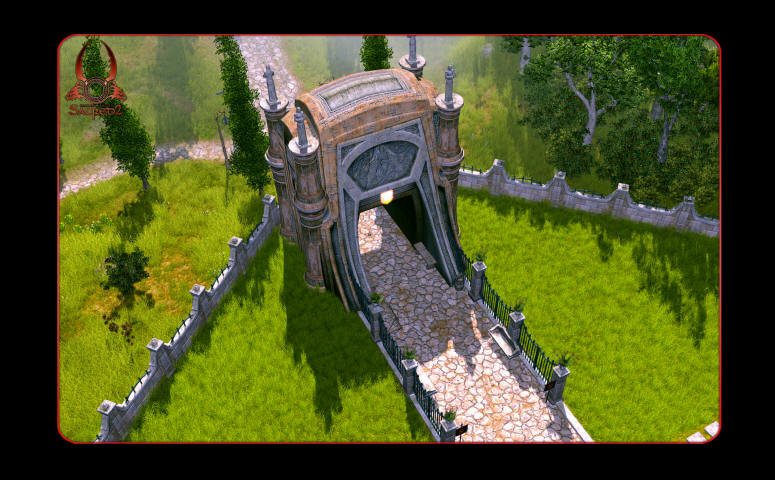
City Hall and the Temple represent the two major powers in Elven
society, the nobility and the clerics. They have been fighting each
other for centuries, trying to gain leverage in the ongoing struggle for
power. Corruption and crime are commonplace. Outside of the power
struggle, the large harbor acts as the worldly and logistical center of
the city. But where there is light, there's also shadow... Away from the
city center of the nobles and clerics, Human slaves live in a separate
quarter. In a striking contrast to the opulence of the rest of the city,
the Human quarter is dirty and composed of ramshackle buildings made of
the meanest materials.
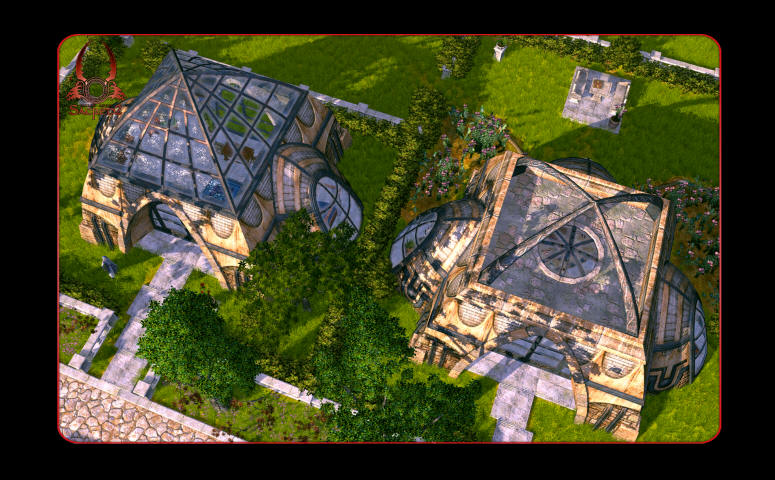
Thylysium is the biggest and greatest city of Ancaria. It is a symbol
for the power and dominance of the High Elves, but a closer look also
reveals a very good picture of the real state of the realm.
Inhabitants
As one would expect in the High Elf region, High Elves are the dominant
race here. You'll find two main types of High Elves in this region, city
Elves and country Elves.
Country Elves are simple people, who work the land for their lords.
Their homes are functional and comfortable, without being ostentatious.
They don't have the luxuries that their city brethren have, but they're
also safely removed from much of the strife that occurs. They work hard,
but have a good and honest life – as long as their lord is happy and
nature doesn't inflict drought or flooding on them.
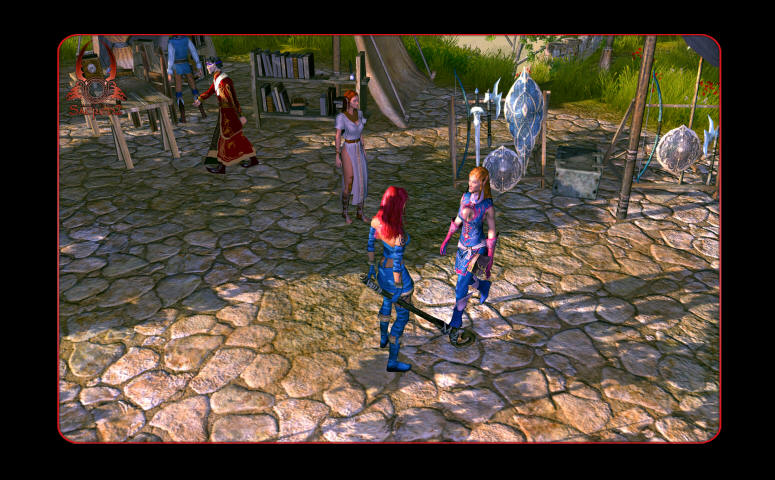
In and near the capital city of Thylysium, the city Elves dominate the
population. City Elves don't have feudal masters like their country
cousins, and their numbers span the social spectrum ranging from
nobility, clergy, merchants and tradesmen. The nobility have town houses
here, and the nobles serve in the senate. The clerics serve in the
Temple, and generally live close by. As you look at the outlying city,
further from the city center, you see more of the dwellings and
businesses of the merchants and tradesmen. When you look even further,
you'll find the dwellings of the Humans. Most Humans here are slaves,
however there also are some enclaves of freed Humans. In both cases,
they live on the outskirts of the city in slums and run-down areas. For
the slaves that's the best their masters will provide, for the others
that's all their Elven landlords will rent to them.
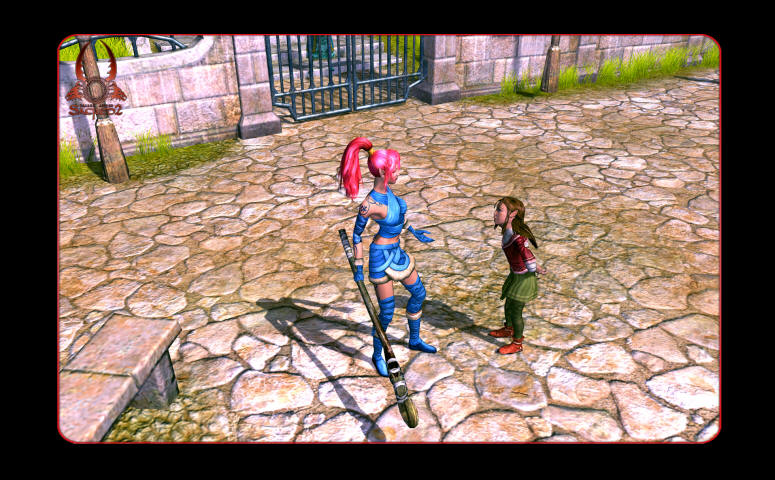
To a visitor it would appear that the city center is safest – as you
leave it's civility you'll often see more fights and criminal activity.
This is especially true near the docks, where many fights break out as
the sailors get drunk and ancient prejudices emerge. Looks can be
deceiving though. There is an ongoing power struggle between the
nobility and the clerics. They care a great deal about appearances, so
there's no visible armed conflict – instead the struggle is conducted in
secret. Furtive messengers sneaking about, assassination attempts,
poisonings... These are the things a knowledgeable observer can spot
with a trained eye.
Environment
This is quite possibly the most pleasant region of Ancaria. The climate
is just right for greenery to abound! In the capital, and to a lesser
degree the other cities and villages, you'll see beautifully landscaped
trees, shrubbery and flowers, with the occasional palm tree thrown in to
add an extra air of opulence. In the outlying areas you'll find farms,
vineyards, and rolling meadows dotted with deciduous trees.
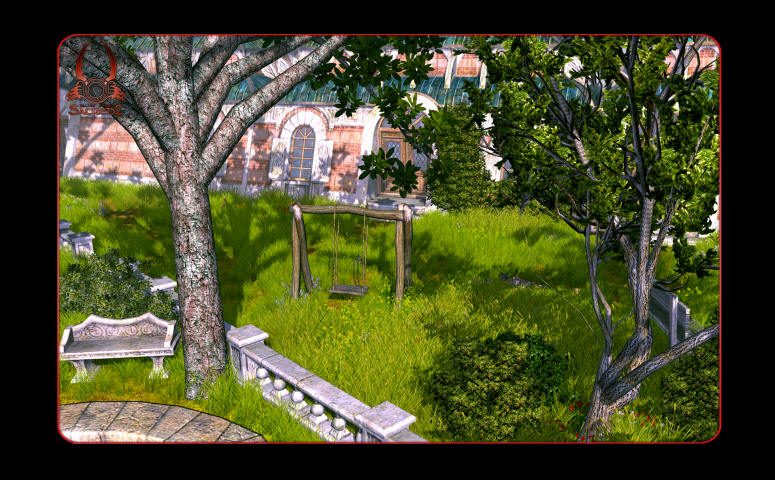
Overall, the terrain is very gentle and easy to traverse. Most of the
land is flat or at most populated by gently inclining hills, however
there are some areas where you need to follow the path. These are mostly
found at the borders of the High Elf region, which probably contributed
to the original formation of the regions, or near the beach by the sea.
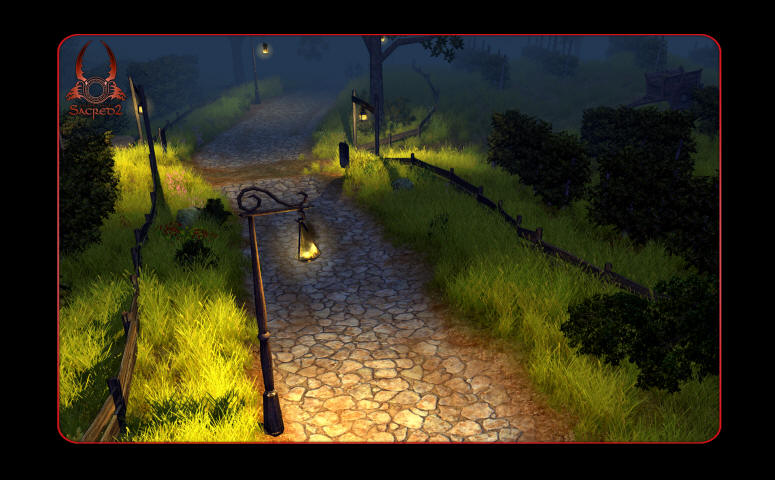
As you would expect in a region this inviting, wildlife is abundant.
Near the sea, ponds, rivers and streams you'll encounter wildlife such
as turtles, frogs and fish. Inland the wildlife is typical of this type
of climate and terrain, so you'll meet a variety of wildlife ranging
from deer down to rabbits. In cities and villages it's not at all
uncommon to run into animals that have been domesticated over the years,
and now serve as pets or livestock.

